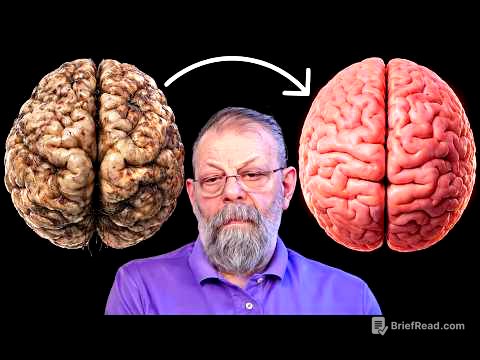TLDR;
This video clip talks about how to improve your relationship by being more conscious about how you spend time with your partner. It highlights the importance of quality time, shared experiences, and continuous growth, rather than just passively watching TV together. The speaker shares personal experiences and suggests practical ways to reconnect and strengthen the bond with your partner, even amidst busy schedules and distance.
- Conscious planning and communication are key to managing distance in a relationship.
- Shared experiences and continuous learning can significantly improve intimacy.
- Serving together can create a deeper connection and shared purpose.
Introduction [0:00]
The speaker emphasizes that most couples only watch TV together, which is the lowest form of intimacy. He argues that this doesn't help the relationship grow and can actually cause it to fall apart slowly. He promises that the quality of your relationship will improve immensely if you do any of the other three activities he will mention, instead of just watching TV.
Experiences with Distance [0:27]
The speaker shares his experience of being in a relationship with his wife for 10 years, during which they've spent varying amounts of time apart due to work. He used to believe distance was good for relationships, but he realized that unconscious time apart is unhealthy. Six months apart felt like it took six months to reconnect, especially when the time apart was unconscious. He now focuses on making distance conscious and communicated.
Making Distance Work [3:00]
The speaker shares how he's planning his tour this year to ensure quality time with his wife. He's scheduling trips with her between tour legs and planning which cities she'll join him in. This conscious planning helps maintain their connection. He also mentions a rule Paul Brunson has with his wife: if an opportunity requires them to be apart for more than two weeks, they either go together or he doesn't go. The speaker encourages viewers to create their own relationship rules.
Levels of Connection [5:18]
The speaker introduces the concept of levels of connection, explaining that simply being in the same space isn't enough. He shares an example of a friend who felt disconnected from her partner even after a vacation because he was always on his devices. The speaker points out that she wasn't just asking for time, but for presence and shared energy. He highlights that watching TV is the lowest form of intimacy.
Pyramid of Intimacy [7:21]
The speaker introduces a pyramid of intimacy, with entertainment (watching TV) at the bottom. He suggests doing new experiences together, where both partners are not experts, to create vulnerability and shared discovery. Examples include trying a new sport or art class. Higher levels include education (learning together through books, podcasts, or courses) and serving together (volunteering at a soup kitchen or homeless shelter).
Conclusion [9:48]
The speaker reiterates that engaging in experiences, education, or service together can significantly improve the quality of a relationship compared to just watching TV. He encourages viewers to plan and prioritize these activities, emphasizing that they don't necessarily take more time than watching TV. He ends by asking viewers to subscribe to the channel.









